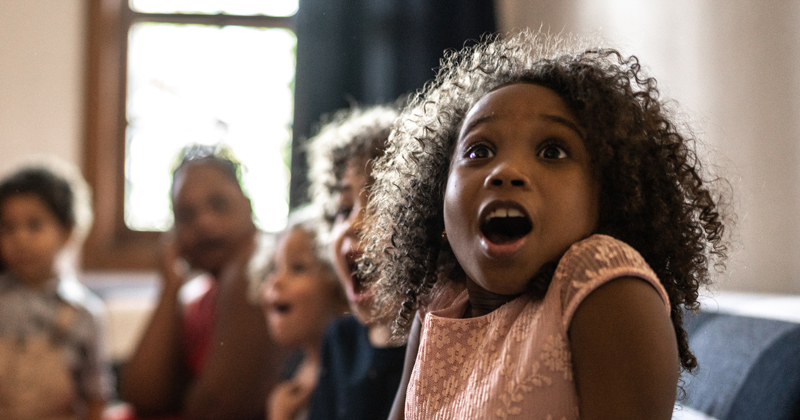A teenager who hates putting pen to paper holding an audience in the palm of her hand.
A Socratic seminar on the meaning of causation in history.
A group of students persuading local councillors to do more about homelessness in the area.
A six-year-old speaking with no notes for five minutes on why we need to take climate change more seriously.
A heated dispute in the playground resolved, not with fists, but words.
These aren’t rare moments in exceptional schools, but everyday examples of something quietly transformative: oracy education.
It’s rare in that one idea has so many layers, but oracy is such an idea. It deepens thinking. Aids collaboration. Improves writing. Resolves conflict. Fosters kindness. Bridges divides. Builds confidence.
In the past 10 years, thanks to the work of Voice 21 and nearly 16,000 teachers and 4,000 oracy leaders across the country, oracy is taking off. It has gone from an afterthought to mainstream: one in 10 schools now have an oracy lead, a role that didn’t even exist 10 years ago.
Voice 21 began its work with just 12 schools in 2015. It now partners with over 1,100 schools every year. In total, more than half a million students have had access to a high-quality oracy education over the past decade.
But the context for oracy is changing fast. In the past, a school leader could get away with seeing it as a ‘nice to have’. Put it in that basket we might dismiss it as ‘yet another thing teachers have to think about’. No longer.
With the rise of AI, we need to cultivate the kind of communication, empathy and reasoning skills that machines can’t replicate. Oracy education is at the heart of that.
Oracy must become an entitlement for every child
And my recent research into the rise of far-right populism has made me more convinced than ever that in a world of polarisation and growing intolerance, how we teach children in school to ‘disagree agreeably’, to listen as well as speak, is vital work that won’t be done anywhere else.
In the workplace, oracy is prized as a tool for both collaboration and creativity. Yet employers often comment on how new recruits lack this important skill.
This is probably why last year polling from YouGov for the oracy commission found that 80 per cent of business leaders supported spending more time on the development of young people’s spoken language and listening skills at school.
The growing importance of oracy is backed by evidence.
We know that children with good language skills achieve better results in English and maths and have higher rates of motivation and confidence.
We know oracy in the classroom deepens thinking and improves writing.
On leaving school, young people with oracy skills have better job prospects and are less likely to suffer mental health difficulties.
Crucially, research shows that oracy can be taught effectively. Using innovative comparative judgment software, Voice 21 has found that students in schools with a sustained focus on oracy demonstrate significantly stronger skills than those in schools that don’t.
This is why oracy education needs to become an entitlement for every child. And the prime minister, who is fully committed to oracy, can make this manifesto commitment happen in his curriculum and assessment reforms.
So, what needs to change?
Oracy needs to become a fourth R – alongside reading, writing and maths. It needs to be given similar status and similar attention.
Oracy needs to be embedded meaningfully in the national curriculum across all subjects, and not be bolted on.
We need an assessment system that recognises and values oracy.
And every school should be equipped and supported to deliver oracy well—from teacher training to leadership roles like oracy leads.
This isn’t just about raising standards. It’s about fairness. Every child, no matter their background, should leave school with the skills and confidence to speak up and be heard.
Oracy provides a toolkit for success and a repertoire for navigating life. Now is the time to ensure the next generation has what it needs to thrive.












Your thoughts